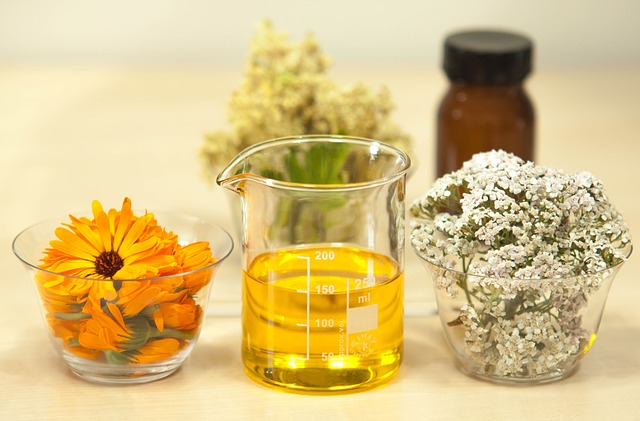There’s nothing scarier for modern families than the idea of a solution causing more damage than the problem. When it comes to the products we use to clean our homes and keep our families healthy, awareness is key.
More families are taking time to learn about harmful chemicals and additives in their household products and replacing them with natural alternatives. Argan oil has long been a favorite among consumers.
This light, residue-free oil has many applications, from health and beauty to natural remedies. Here’s everything you need to know about argan oil and how you can use it to create natural remedies for your family.
What Is Argan Oil?
It is the oil produced from the kernels of the argan tree, which is native to Morocco. The argan kernel itself is a small seed, surrounded by pulp and enclosed in a hard exterior. Each argan nut contains up to three kernels that make up a quarter of the entire nut.
From that, approximately 30% of the kernel can be expressed in oil form. Extraction is an arduous process that takes a lot of argan nuts.
It is used for natural cosmetic purposes and cooking. Like many other natural oils, argan can also be used for holistic applications for both preventative and reactive health.
Visit the Global Healing Exchange YouTube Channel for other ways you can practice holistic health at home.
Using Pure Argan Oil
One of the main challenges of using natural products is ensuring that they are, in fact, natural. Whether you’re sourcing essential oils, coconut oil, argan oil or any other natural product, be sure to purchase from a trusted supplier and read labels closely.
Visit the Argan Oil Shop for oil that’s free of additives or water.
Looking for pure products is especially important for those that have culinary applications or will be ingested as supplements.
Natural Remedies For Your Family
Argan oil is a versatile way to use as a treatment for ailments or as a component in natural treatment recipes. Here are some of the common applications for argan oil.
Eczema
Those who battle with eczema have limited treatment options. Eczema is a skin condition that flares up in response to environmental influences, stress, and allergens. The skin becomes red and irritated, often taking on a scaly or cracked texture.
These flare-ups can be itchy and painful, often resulting in blisters and bleeding if the case is serious.
Initial studies show promising results for treating eczema flare-ups. The anti-inflammatory and moisture-sealing properties of argan oil can help reduce redness and dryness, as well as the resulting itchiness that occurs.
This is a safe alternative to steroid creams which should be avoided when possible. As argan oil is free of additives, it will not worsen a flare-up.
Diaper & Heat Rash
Babies have soft, supple skin that is susceptible to environmental influences. Argan oil is a natural moisturizer that will soothe the skin without causing further irritation.
It can be used to reduce redness and swelling in both diaper and heat rashes. Before applying argan oil to the affected area, take a towel and pat it dry.
Acne
Acne is the result of pores in the skin being blocked with dirt and grime or an overproduction of sebum as a result of hormones or poor dietary habits.
While hardly life-threatening, acne can be damaging to self-confidence, particularly in teenagers who are already struggling with the challenges of their age group.
A lot of over-the-counter acne treatments include harsh additives that can dry the skin and cause further problems. Alternatively, most prescription treatments include antibiotics to kill the bacteria that stems from the blockage.
Mixing argan oil with a natural astringent like apple cider vinegar or tea tree essential oil can be used as an acne treatment that removes grime while locking in moisture.
As argan oil lacks the viscosity of other oils (coconut, for example) it won’t exacerbate the problem by causing more blockages. Additionally, the anti-inflammatory properties help reduce redness and swelling associated with breakouts.
Diabetes & Heart Health
Proactive health is just as important as reactive health, if not more so. When used as a supplement, argan oil shows promising effects that may improve cardiovascular health, offsetting the impacts of diabetes.
Argan oil, like olive oil and avocado oil, is a healthy fat that’s rich with Omega-9, also known as oleic acid. Oleic acid in the diet has been shown to have positive impacts on cardiovascular health, such as blood pressure reduction, cholesterol reduction, and disease prevention.
However, the majority of these studies have been centered around olive oil as it is a more popular consumer product. While the properties of the oils are the same, more research is required to validate these results.
In Morocco, argan oil is often used with seasoning on rice, couscous, and vegetables. Using it for its heart-healthy cooking applications is a great way to replace lesser oils in the kitchen to promote good health.
You can find much more information on living a holistic lifestyle in these free magazines and on our YouTube channel.
A Must-Have Holistic Tool
Argan oil is a versatile substance that makes it a must-have in your holistic health toolbox. It can be used to replace chemical-rich hair and beauty products, as well as eliminating the time required creating your own concoctions. Add this gift from the earth to your medicine cabinet for long-term holistic health.






